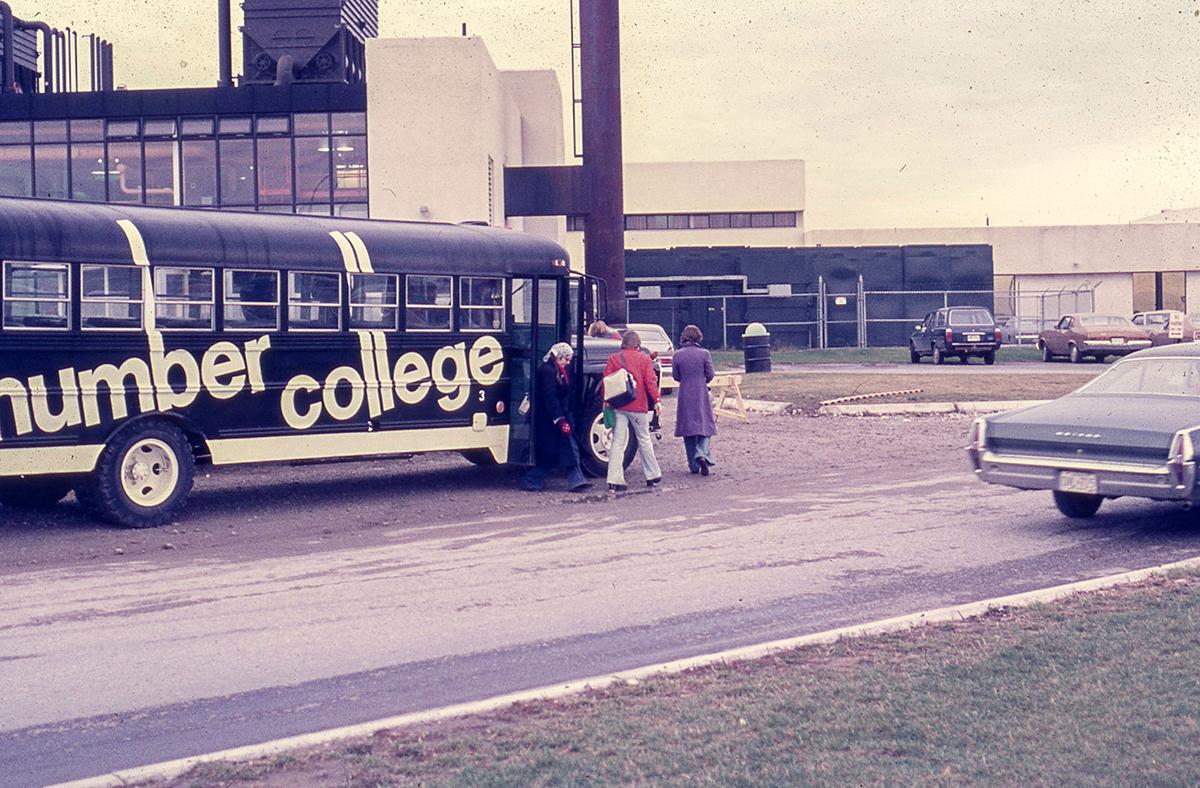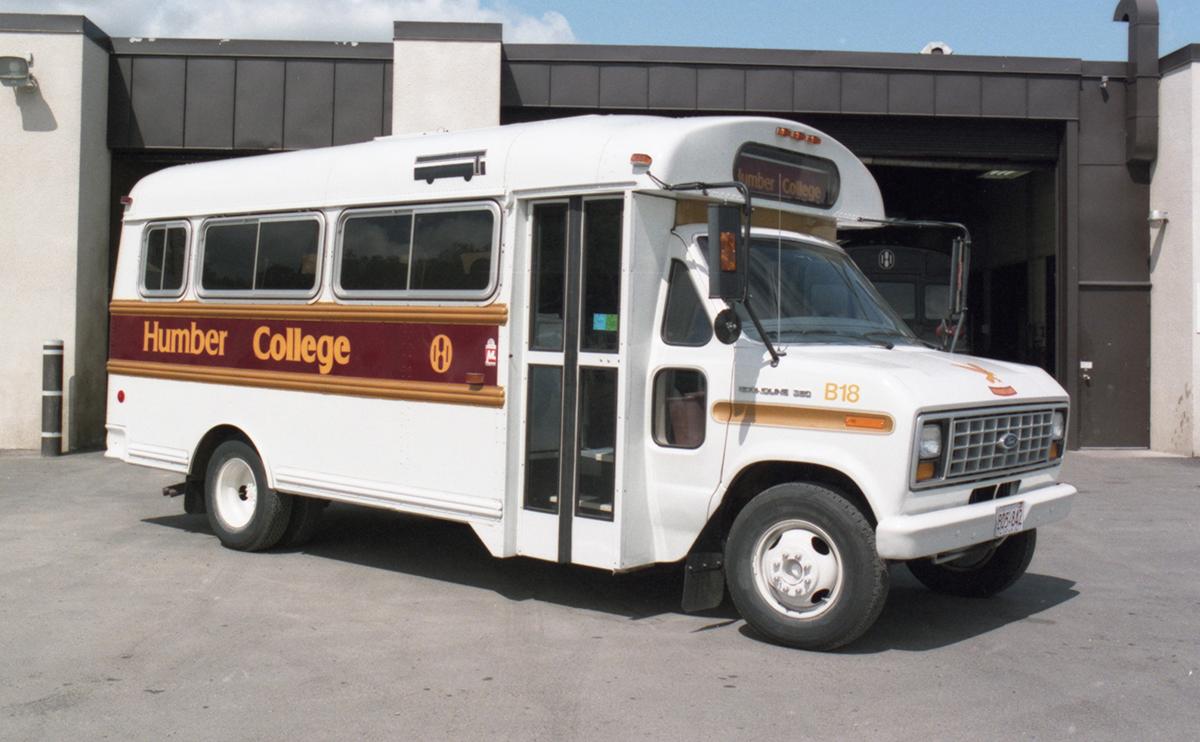
This story is part of a collaboration with the Humber Archives to dig into Humber Polytechnic’s past to resurface fun, memorable or quirky moments and memories from the institution’s history.
From the late 1960s to early 70s, what was then Humber College, saw a need for a bus system to transport students between campuses. This need was driven by the lack of a proper public transportation system at the time.
The Humbus ran to North, Lakeshore and Osler campuses, stopping at areas such as the West and East Malls, Burnhamthorpe Road and Martin Grove Road, just to name a few.

In 1974, Don Mclean, manager of the Transportation Club, pointed out that on average the buses transported 1,000 students per day, taking 22 runs a day excluding field trips. The buses also transported students who were sick and needed to go home or those who required medical attention.
In 1975, the transportation cost was $30 per semester pass or $0.35 per individual bus ticket, which had to be purchased from the Office Services at North Campus. Student identification cards were used as an acceptable form of payment in lieu of bus tickets and the students had to retrieve the cards at the campus store upon paying their fares in full as the bus drivers were not allowed to accept cash.
These bus drivers were amazing as they were praised and awarded for their safe driving skills and accident-free records. Drivers such as Gord Martin, Joe Miceceli, William Obelnicki, Terry Anderson and Bob Corbeil, who had combined safe service records of over 100 years, all received pins for safe driving from the Ontario Safety League.

As time went on, public transit options increased service to Humber’s campuses.
“The TTC had many buses coming to the college, and we are just duplicating their service,” said McLean back in 1982.
This resulted in cuts in many routes and services due to improved transportation systems and a decline in ridership. Between 1988 to 1991, services were cut for Mississagua, Brampton, Georgetown, Orangeville and Woodbridge.